#India Alliance meeting
Explore tagged Tumblr posts
Text
Sunny Nimhan - Advocate for Youth Empowerment, Pune's Leading Politician
Sunny Vinayak Nimhan is a strong advocate for youth empowerment, working with young entrepreneurs in Pune. He's a corporator of Pune and one of the most popular politicians in India. His focus includes sports development, women empowerment, and support for startup culture in Pune.
#incommunicado meaning#indian politics#political news#indian news live#india alliance meeting#nitin gadkari#maharashtra politics news#maharashtra politics#maharashtra political crisis explained#tiktokindia#7 am top headline 9 may 2024#india today news#india today live#indian youtuber#india general election 2004#tv9 breaking news#pune nana bhangire#maharashtra political crisis#saam tv marathi news headlines#india election 2024#pune rain
0 notes
Text
बीएसपी सुप्रीमो मायावती ने रोकी इंडिया अलाइंस की सांसे, विपक्ष के लिए खड़ी हो सकती है मुश्किलें
बीएसपी सुप्रीमो मायावती ने रोकी इंडिया अलाइंस की सांसे, विपक्ष के लिए खड़ी हो सकती है मुश्किलें
UP Lok Sabha Election 2024: उत्तर प्रदेश में लोकसभा चुनाव को लेकर सियासी घमासान तेज होता जा रहा है. एनडीए का मुकाबला करने के लिए सपा-कांग्रेस लगातार खुद को मजबूत करने में जुटी है. लेकिन बहुजन समाज पार्टी की मुखिया मायावती ने इंडिया अलाइंस की सांसे रोकी हुई हैं. मायावती के एक-एक कदम विपक्ष के लिए मुश्किल खड़ी कर सकता है. कांग्रेस काफी समय से मायावती को मनाने की कोशिश कर रही है, लेकिन उनके सारे…
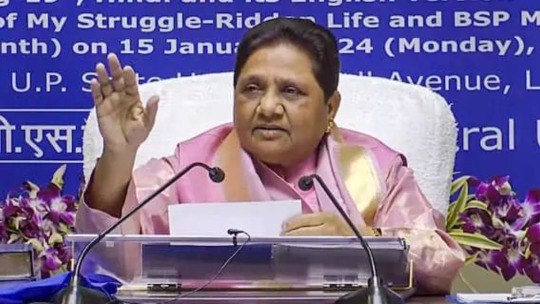
View On WordPress
#BSP supremo#India Alliance#india alliance boycott news anchor#india alliance kya hai#india alliance malayalam#India Alliance meeting#india alliance meeting 19 december#india alliance meeting mumbai live#india alliance press conference#india alliance press conference today#india alliance tamil#Mayawati#mayawati gaan#mayawati gana#mayawati ka bhashan#mayawati live#mayawati news today 2024 live#mayawati park#mayawati song#mayawati speech#mayawati video
0 notes
Text
Ajoy Kumar Assures Residents of Bhuiyandih: No Homes Will Be Demolished
Advocate Sandeep Banerjee to represent Bhuiyandih residents in NGT on August 23. Dr. Ajoy Kumar met residents of Bhuiyandih and assured them that their homes would not be demolished. JAMSHEDPUR – Dr. Ajoy Kumar, former MP and senior Congress leader, met residents of Bhuiyandih’s Kalyan Nagar, Radhika Nagar, and Chhayanagar to discuss the ongoing issues related to their homes near the Swarnarekha…
#Ajoy Kumar meeting#Attorney General Rajeev Ranjan#जनजीवन#Bhuiyandih residents#Chhayanagar#India Alliance government#Kalyan Nagar#Life#NGT hearing#Radhika Nagar#ranchi high court#Sandeep Banerjee advocate#Swarnarekha river
0 notes
Text
youtube
Lalu Yadav: अपने पुराने अंदाज में नजर आए पूर्व सीएम लालू यादव
बिहार के पूर्व मुख्यमंत्री लालू यादव (Lalu Yadav) ने शुक्रवार को INDIA गठबंधन के मंच से संयुक्त प्रेसवार्ता में केंद्र सरकार और भाजपा पर जमकर निशाना साधा। उन्होंने अपने अलग ही अंदाज में चुटकी लेते हुए अपनी बात रखी। इस दौरान वहां मौजूद लोग ठहाके लगाते हुए दिखाई दिए। लालू ने अपने संबोधन में गठबंधन में शामिल सभी दलों के मिलकर लड़ने की बात भी कही।
#अपने पुराने अंदाज में नजर आए पूर्व सीएम लालू यादव#khabarwala24#lalu yadav#lalu prasad yadav#लालू यादव#लालू प्रसाद यादव#लालू यादव भाषण#लालू यादव न्यूज़#लालू यादव बिहार#लालू यादव वीडियो#लालू प्रसाद यादव न्यूज#opposition meeting#india alliance#india mumbai meeting#opposition meeting in mumbai#india alliance mumbai meeting#opposition mumbai meeting#opposition meeting mumbai#opposition unity#india opposition mumbai meeting#india alliance meeting#latest news#Youtube
0 notes
Text
মুম্বইয়ে তৃতীয় দফায় বৈঠক, কবে ফের একমঞ্চে বিরোধী শিবির ?
নয়াদিল্লি : দ্বিতীয় বৈঠক দূরত্ব ঘুচিয়েছে। যা কার্যত অধরা ছিল প্রথম বৈঠকে। বেঙ্গালুরুর বৈঠকের পর বিজেপি-বিরোধী লড়াইয়ে একতায় কোনও ঘাটতি রাখা হবে না বলে একপ্রকার ‘অলিখিত চুক্তি’ই করে নিয়েছে বিরোধী শিবির, অন্তত রাজনৈতিক মহলের তা-ই পর্যবেক্ষণ। কারণ অবশ্যই, রাজ্যভিত্তিক নানা সমীকরণকে দূরে সরিয়ে রেখে হিংসা-বিধ্বস্ত মণিপুরে প্রতিনিধিদল পাঠানো INDIA-র। এবার নতুন এই মঞ্চে এক জায়গায় আসা সমস্ত দলের মধ্যে…
View On WordPress
0 notes
Note
Can you elaborate more on how hindutva is tied to zionism and white supremacy? I'm not trying to hate I'm genuinely curious.
tbh i don’t have the energy rn to write up an explanation myself, but here are some sources to get you started:
hindutva’s ties to fascism, nazism, & white supremacy broadly
hindu fascism 101: what is hindutva?, by the alliance for justice & accountability
why white nationalists are working with hindu supremacists, by safa ahmed at progressive
why white supremacists and hindu nationalists are so alike, by audita chaudhery at al jazeera
white and hindu supremacists are a match made in heaven, by amardeep singh dhillion at novara media
when hindu nationalism and white nationalism meet, by thomas crowley at jacobin
hindutva & zionism specifically
united in hate: the similarities and solidarities between hindutva and zionism, by ananya ray at feminism in india
the hindu nationalists using the pro-israel playbook, by aparna gopalan at jewish currents
why zionism rules the hearts of hindutva acolytes, by shreevatsa navatia at frontline (a magazine of the hindu)
in state repression and its justification, india and israel have much in common, by achin vanaik at the wire
violent majorities: indian and israeli ethnonationalism, a discussion between balmurli natrajan, lori allen, and ajantha subramanian at recall this book podcast
how hindu nationalists became best friends with israel, by goldie osuri at jacobin
india's hindutva proponents and zionist israel: strange bedfellows, by kavita chowdhury at the diplomat
2K notes
·
View notes
Text
To counter what they view as a rising tide of prejudice, the HAF and other Hindu American groups have turned to American Jewish organizations, which they have long seen as “the gold standard in terms of political activism,” as Maryland State Delegate Kumar Barve said in 2003. Since the early 2000s, Indian Americans have modeled their congressional activism on that of the American Jewish Committee (AJC) and AIPAC; Indian lobbyists have partnered with these groups to achieve shared defense goals, including arms deals between India and Israel and a landmark nuclear agreement between India and the US. Along the way, these Jewish groups have trained a generation of Hindu lobbyists and advocates, offering strategies at joint summits and providing a steady stream of informal advice. “We shared with them the Jewish approach to political activism,” Ann Schaffer, an AJC leader, told the Forward in 2002. “We want to give them the tools to further their political agenda.” Shukla told Jewish Currents that the HAF continues to work closely with the Anti-Defamation League (ADL) and the AJC, whether by “being co-amici curiae on briefs to the US Supreme Court,” or by “lending our support to one another’s letters to Congress.”
[...] Faced with rising scrutiny over India’s worsening human rights record, Hindu groups have used “the same playbook and even sometimes the same terms” as Israel-advocacy groups, “copy-pasted from the Zionist context,” said Nikhil Mandalaparthy of the anti-Hindutva group Hindus for Human Rights (HfHR). Hindu groups have especially taken note of their Jewish counterparts’ recent efforts to codify a definition of antisemitism—the International Holocaust Remembrance Alliance (IHRA) working definition—that places much criticism of Israel out-of-bounds, asserting that claims like “the existence of a State of Israel is a racist endeavor” constitute examples of anti-Jewish bigotry.
[...] In 2003, Gary Ackerman—a Jewish former congressman who was awarded India’s third-highest civilian honor for helping to found the Congressional Caucus on India—told a gathering of AJC and AIPAC representatives and their Indian counterparts that “Israel [is] surrounded by 120 million Muslims,” while “India has 120 million [within].” Tom Lantos, another Jewish member of the caucus, likewise enjoined the two communities to collaborate: “We are drawn together by mindless, vicious, fanatic, Islamic terrorism.”
Driven by that sense of shared purpose, the AJC and AIPAC helped train new Indian American political groups—such as the Indian American Political Action Committee and the United States India Political Action Committee—to achieve their aims in Washington. The AJC hosted seminars on political activism in DC and New York; it also brought several delegations of Indian Americans to Israel to meet with members of the Israeli government and military. “We’re fighting the same extremist enemy,” the AJC’s capital region director Charles Brooks told the Forward in 2002.
#reason why any indian should bw interested in zionism as a modern political project#hindutva#zionism#hindutva zionism alliances
787 notes
·
View notes
Text

Batboys as Desi Films

𝐃𝐢𝐜𝐤 𝐆𝐫𝐚𝐲𝐬𝐨𝐧
Dilwale Dulhania Le Jayenge (1995)
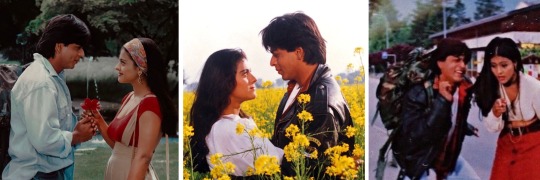
Raj and Simran meet during a trip across Europe and end up getting stranded in the middle of nowhere after they miss their train. Despite their initial clashing, they fall in love. However, Simran’s traditional father has arranged her marriage elsewhere. Raj must win over Simran’s family to marry her, leading to a series of heartfelt moments, comedic misunderstandings, and ultimately, a dramatic climax where love conquers all as the couple fights for their happiness against societal norms.
Dick is so raj coded with his quips and charisma. Their chaotic banter and chemistry is off the charts. Any Indian who hasn’t watched this gets their desi card revoked immediately, I don’t make the rules. This movies fits Dick’s dramatic flair perfectly.

𝐉𝐚𝐬𝐨𝐧 𝐓𝐨𝐝𝐝
Goliyon ki Raasleela Ram-Leela (2013)
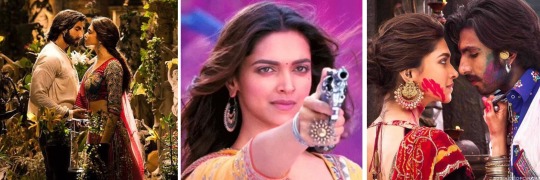
The modern adaptation of William Shakespeare’s “Romeo and Juliet,” set in rural Gujarat, India. It follows the love story of Ram, from the Rajadi clan and Leela, from the Sanera clan, who belong to rival gangster clans engaged in a long-standing feud. Despite the enmity between their families, Ram and Leela fall deeply in love, leading to a tragic and tumultuous journey filled with passion, violence, and sacrifice.
It fits Jason’s love for guns and classics. An absolute visual treat with cinematography and all the songs are absolute bangers.

𝐓𝐢𝐦 𝐃𝐫𝐚𝐤𝐞
Jab We Met (2007)

Aditya, a heartbroken business tycoon, someone who was dwelling in the lowest ebb of his life and was almost on the brink of giving it all up, aimlessly boards a train to escape his depressing life. On his journey he meets Geet, a talkative and vivacious young woman. Geet is on her way to meet her boyfriend, but her plans go awry, and she ends up stranded. Aditya, feeling sorry for her, decides to help her get to her destination safely. Along the way, they encounter various adventures and challenges that bring them closer together. Despite their contrasting personalities, they develop a deep connection. However, when they part ways, Aditya realizes his love for Geet and sets out to find her. In the end, they reunite, realizing they are meant to be together.
Grumpy x sunshine. The OG green flag. Epitome of ‘if he wanted to,he would’. Makes my chatterbox heart happy because of how much I relate to the FL. Favourite comfort movie of all time. ML kinda looks like Cillian Murphy’s scarecrow. “I like you a lot but that is my problem, you don’t need to worry about it.” Their fights and his little sassy comebacks and rants were so cute and fun to watch.

𝐃𝐚𝐦𝐢𝐚𝐧 𝐖𝐚𝐲𝐧𝐞
Jodhaa Akbar (2003)
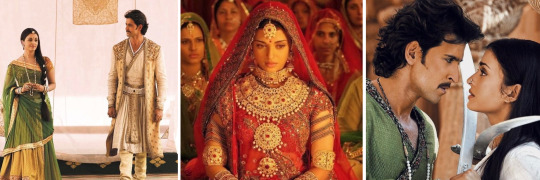
The Mughal emperor Akbar, seeking to forge political alliances, marries Jodhaa, a Rajput princess. Initially a marriage of convenience, their relationship evolves as they learn to respect and love each other. Jodhaa struggles to adapt to Mughal customs, especially with their cultural and religious differences but her courage and integrity win Akbar's admiration. Despite conspiracies and opposition, including from Akbar's own court, their love prevails. The film explores the transformation of a young ruler, initially groomed for ruthlessness by his mentor Bairam Khan, into a wise and compassionate emperor who values mercy, diplomacy, religious harmony and cultural acceptance. Akbar's realization of the importance of religious tolerance, showcased through his abolition of discriminatory policies and his respect for all faiths.
The arranged marriage tag and the ‘raised as a weapon but softens and shows more compassion out of respect and love for his empress’ tag fits demonhead!Damian so much. The way he said mashallah after he pulled off her veil in the middle of a sword fight >>>>. I love how it captures the essence of India’s rich heritage and diversity. “Why seek paradise ? It is before me now.”

𝐁𝐫𝐮𝐜𝐞 𝐖𝐚𝐲𝐧𝐞
Khoobsurat (2014)

Milli, a free-spirited and eccentric young woman becomes the physiotherapist for a royal family. She brings her lively yet clumsy personality into the conservative royal household, shaking up their structured lives. It clashes with the formal atmosphere of the palace, especially with the stern matriarch, Nirmala Devi. Despite initial resistance, Milli's unconventional methods bring joy and laughter into the lives of the family members, including the brooding prince, Vikram. As Milli navigates the challenges of fitting into the royal household, she also finds herself falling in love with Vikram, leading to a series of comedic and heartwarming moments.
Very cliched (well it is a Disney film) and the second hand embarrassment is unreal but sometimes after a long day all you need is a feel-good cheesy rom-com. Oh to sit next to Fawad Khan in a red convertible while gazing lovingly at him. I like how she emphasises on improving the patient’s mental health to help him heal. Incase you haven’t noticed already, cold brooding™️ x silly goose is my favourite character dynamic.

𝐀/𝐍 - I’ll be honest with y’all, this was to satiate my desire of writing x desi! reader cuz I don’t have enough motivation or time to do it T^T

#batman#batfam#dick grayson#nightwing#dick grayson x reader#jason todd#red hood#red hood x reader#tim drake#red robin#tim drake x reader#damian al ghul#damian wayne#robin#damian wayne x reader#batboys#bruce wayne#batman x reader#bollywood#movies#bruce wayne x reader#ddlj#dilwale dulhania le jayenge#jab we met#khoobsurat#jodhaa akbar#ram leela
345 notes
·
View notes
Text
{Amor Omnia Vincit-Lucius Verus Aurelius}
SUMMARY: Caracalla and Geta are turning their heads towards India, and Indian Crowns know better than to anger the Rome's Wolfs. [PROLOGUE]
PAIRING: Lucius Verus Aurelius x South Indian OC
WORD COUNT: 445
WARNINGS: none for now :}
Amor Omnia Vincit: Love Conquers All
Sixteen years after the death of Marcus Aurelius, his ,,dream of Rome” has been forgotten.
Under the tyranny of the twin emperors Geta and Caracalla, corruption flourishes.
Their ruthless agression spreads like plague throughout the empire.
The fall of the great city is imminent.
Only the hopes of those who still dream remain…
After the Roman Empire secured its grip on Numidia, the ambitions of Geta and Caracalla turned eastward—toward the fabled riches of India. The Indian crowns, wary of the empire's insatiable hunger for conquest, sought to avoid plunging their lands into the brutal chaos of Roman warfare. They knew Rome's reputation too well.
In their councils, the kings deliberated fiercely over how to preserve their sovereignty without sacrificing their dignity. Proposals of tribute, alliances, and trade flowed freely, but one whispered suggestion sent ripples through the court—a peace offering in the form of a woman.
The notion, though pragmatic, was met with outrage. For many, it was unthinkable to barter their daughters for diplomacy. "Would we stoop so low as to hand over our blood to the wolves of Rome?" some declared. Others nodded grimly, believing such a gesture would tarnish their honor forever.
But amidst the uproar, one voice rose above the clamor. A minor king, neither celebrated nor scorned, stepped forward. His eyes held the weight of a decision already made. He offered a name—Tillotama, his daughter born of a courtesan.
Though she was a child of no official union, he spoke of her beauty and her wit, gifts that would surely intrigue even Rome's ruthless rulers. With a mixture of resignation and pride, he declared her the one worthy to stand as a bridge between empires.
And so, Tillotama's fate was sealed—not by her own hand, but by a desperate king seeking to save his people from the jaws of conquest. Little did they know, the daughter of a courtesan would carry the power to shape the destinies of both worlds.
Yet, fate had far more in store for Tillotama. For with her, a protector would rise—a man unlike any other. He was born with fury coursing through his veins, his soul a tempest of rage that no mortal force could calm. His thirst for vengeance was insatiable, a fire that no thousand armies could quench.
He was a godless creature, a storm in human form. Yet what happens when such a man meets his destiny in her eyes? What if, in the presence of this woman, his unyielding wrath is eclipsed by something he cannot fight?
What if, in that fateful moment, the godless man falls to his knees—not in surrender to kings, nor to gods, but to her?
#lucius verus#gladiator ii#gladiator movie#lucius verus aurelius#paul mescal#lucius verus aurelius x south indian oc
21 notes
·
View notes
Photo
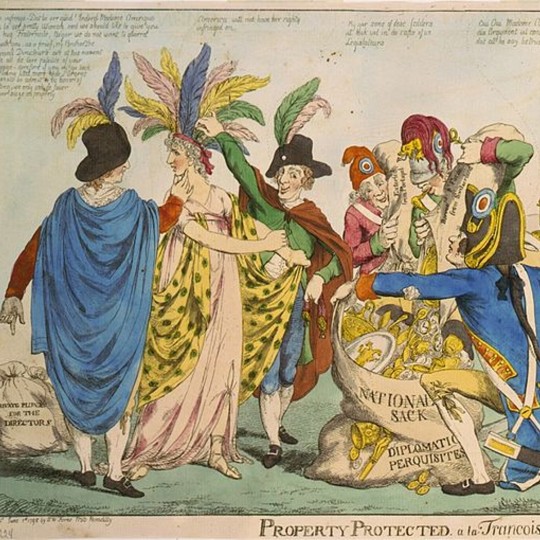
XYZ Affair
The XYZ Affair was a diplomatic incident that occurred in 1797-98, involving diplomats from the United States and Revolutionary France. Amidst rising tensions between the two nations, President John Adams sent envoys to Paris to negotiate a treaty, only to find that the French would not open negotiations unless the US paid a bribe. This helped to incite the Quasi-War.
The affair came at a time when the concurrent French Revolution (1789-1799) was already creating divisions within American politics. The nationalist Federalist Party – of which President Adams was a member – was horrified by the violence of the French Revolution and wanted to move the United States away from France's sphere of influence. To do this, they sought to foster closer political and economic ties with Great Britain, which they viewed as the natural ally of the US. This caused outrage amongst the rival political faction, the Democratic-Republican Party (Jeffersonian Democrats), who believed that closer ties with Britain would only undermine republicanism in the United States. At the same time, the French Republic viewed the budding relationship between the US and Britain as an act of aggression and authorized attacks on American merchant vessels in late 1796.
In 1797, President Adams sought to resolve the issue diplomatically and sent three envoys to France. These envoys had expected to be received by the French foreign minister, Charles Maurice de Talleyrand-Périgord; instead, they were met by three French intermediaries (referred to in coded dispatches as agents 'X', 'Y', and 'Z') who insisted that the United States pay a large bribe in order to meet with Talleyrand and begin negotiations. When this became public knowledge in the US, it inflamed public opinion against the French, leading to increased support for Adams and the anti-French Federalists. Rising Franco-American tensions led to a brief, undeclared naval conflict called the Quasi-War (1798-1800), as well as the passage of the controversial Alien and Sedition Acts (1798).
Background
In 1778, the Kingdom of France signed a Treaty of Alliance with the fledgling United States. The American Revolutionary War had been ongoing for three years, and the Americans had time and again proven their resilience and determination in battle against the British; however, it was clear to all that the American rebellion would falter if they did not receive support from a European power. France was happy to oblige, seeing that a victory in America would humiliate and weaken its rival, Great Britain. France provided the Americans with arms, ammunition, uniforms, troops, and ships, and it turned the war into a global conflict by threatening the valuable British colonies in India and the West Indies, forcing Britain to spread its military resources thin. French soldiers and ships proved vital to the decisive American victory at the Siege of Yorktown, the engagement that solidified American independence. Certainly, the French contributed greatly to the ultimate American victory and succeeded in striking a blow to British prestige in the process.
But such a war came with a monstrous cost, and France soon found itself drowning in debt. Attempts to tackle the problem failed, and France's economic misfortunes blossomed into a revolution. News of the Storming of the Bastille in July 1789 was sweet to American ears, as was the proclamation of the First French Republic three years later. Americans were jubilant that their French brothers-in-arms were following their lead and casting off the shackles of monarchism, with Thomas Jefferson and his supporters even welcoming the new French Republic as "our younger sister" (Wood, 182). But then came the violence: the September Massacres, the trial and execution of Louis XVI, and the start of the Reign of Terror made the streets of Paris slick with blood and plunged the young French Republic deeper into chaos. Under the new Jacobin regime, hundreds of thousands of French citizen-soldiers swept into Europe, vowing to deliver liberty and equality at the point of a bayonet. The French Revolutionary Wars were soon underway as the great powers of Europe – Austria, Prussia, Spain, Portugal, and Great Britain among them – took up arms against the French.
Even now, the French Revolution had support in the United States, with men like Jefferson believing that a little violence was the price to pay for liberty. They believed that the 1778 Treaty of Alliance was still in effect and urged the Washington Administration to offer support to their sister republic. However, President George Washington was reluctant to offer any such support. He knew that doing so would risk antagonizing Great Britain, with whom relations were already low, at a time when the United States was completely unprepared for war. Instead, Washington issued a Proclamation of Neutrality on 22 April 1793, in which he promised to keep the United States out of the French Revolutionary Wars. The following year, his administration negotiated a deal with Britain – the controversial Jay Treaty, ratified by Congress in 1795, created stronger economic and political ties between Britain and the United States. While this achieved the goal of the Washington Administration and the Federalist Party of avoiding another war with England, it outraged the Jeffersonian faction of Americans (Democratic-Republicans), who still wanted to support France and feared that the treaty placed the US too closely within Britain's sphere of influence.
Jay Treaty
John Jay (Public Domain)
The French Republic itself was also incensed by the Jay Treaty, which it interpreted as a British-American alliance. The French felt especially double-crossed because they believed the 1778 Treaty of Alliance was still in effect and had been expecting American support. They retaliated in 1796 when French privateers began attacking American shipping in the British West Indies. Within the next year, nearly 300 American merchant ships were captured, their crews often subjected to maltreatment; in one instance, the French tortured the American captain of the Cincinnatus with thumb screws to get him to confess that he was carrying British goods. Amidst these rising tensions, Washington, who was preparing to leave office, recalled James Monroe as ambassador to France, feeling that Monroe was too pro-French. In his place, Washington sent Charles Cotesworth Pinckney, a hardline Federalist from South Carolina; but when Pinckney arrived in Paris, the French refused to even receive him. This was how matters stood when John Adams was inaugurated as the second US president on 4 March 1797 – a discontented pro-French faction on American soil, and an aggressive French Republic looking to assert its will.
Continue reading...
33 notes
·
View notes
Text
Manifesto of the Communist Party
[ Table of Contents | Next ▹ ]
A spectre is haunting Europe – the spectre of communism. All the powers of old Europe have entered into a holy alliance to exorcise this spectre: Pope and Tsar, Metternich and Guizot, French Radicals and German police-spies.
Where is the party in opposition that has not been decried as communistic by its opponents in power? Where is the opposition that has not hurled back the branding reproach of communism, against the more advanced opposition parties, as well as against its reactionary adversaries?
Two things result from this fact:
Communism is already acknowledged by all European powers to be itself a power.
It is high time that Communists should openly, in the face of the whole world, publish their views, their aims, their tendencies, and meet this nursery tale of the Spectre of Communism with a manifesto of the party itself.
To this end, Communists of various nationalities have assembled in London and sketched the following manifesto, to be published in the English, French, German, Italian, Flemish and Danish languages.
I. Bourgeois and Proletarians*
* By bourgeoisie is meant the class of modern capitalists, owners of the means of social production and employers of wage labour. By proletariat, the class of modern wage labourers who, having no means of production of their own, are reduced to selling their labour power in order to live. [Engels, 1888 English edition]
The history of all hitherto existing society† is the history of class struggles.
† That is, all written history. In 1847, the pre-history of society, the social organisation existing previous to recorded history, all but unknown. Since then, August von Haxthausen (1792-1866) discovered common ownership of land in Russia, Georg Ludwig von Maurer proved it to be the social foundation from which all Teutonic races started in history, and, by and by, village communities were found to be, or to have been, the primitive form of society everywhere from India to Ireland. The inner organisation of this primitive communistic society was laid bare, in its typical form, by Lewis Henry Morgan's (1818-1861) crowning discovery of the true nature of the gens and its relation to the tribe. With the dissolution of the primeval communities, society begins to be differentiated into separate and finally antagonistic classes. I have attempted to retrace this dissolution in The Origin of the Family, Private Property, and the State, second edition, Stuttgart, 1886. [Engels, 1888 English Edition and 1890 German Edition (with the last sentence omitted)]
Freeman and slave, patrician and plebeian, lord and serf, guild-master‡ and journeyman, in a word, oppressor and oppressed, stood in constant opposition to one another, carried on an uninterrupted, now hidden, now open fight, a fight that each time ended, either in a revolutionary reconstitution of society at large, or in the common ruin of the contending classes.
‡ Guild-master, that is, a full member of a guild, a master within, not a head of a guild. [Engels, 1888 English Edition]
Our epoch, the epoch of the bourgeoisie, possesses, however, this distinct feature: it has simplified class antagonisms. Society as a whole is more and more splitting up into two great hostile camps, into two great classes directly facing each other – Bourgeoisie and Proletariat.
From the serfs of the Middle Ages sprang the chartered burghers of the earliest towns. From these burgesses the first elements of the bourgeoisie were developed.
The discovery of America, the rounding of the Cape, opened up fresh ground for the rising bourgeoisie. The East-Indian and Chinese markets, the colonisation of America, trade with the colonies, the increase in the means of exchange and in commodities generally, gave to commerce, to navigation, to industry, an impulse never before known, and thereby, to the revolutionary element in the tottering feudal society, a rapid development.
The Communist Manifesto - Part 1
[ Table of Contents | Next ▹ ]
51 notes
·
View notes
Text
Not to get too political on main but remember that Tokyo Afterschool Summoners supports all forms of queer identity in spite of real-world prejudice, and that its divine, literary, and historical characters illuminate LGBTQ+ identities throughout global history that cannot be erased or forgotten by modern governments.
This post is specifically aimed at Americans, who often forget how much we have and how little we can lose.
A single benchmark of LGBTQ+ rights: gay marriage cannot be legally performed in China, most parts of Japan, Turkey, Russia, many areas in Oceania, India, Mongolia, Tibet, Iraq, most African countries, Israel, or Egypt, the sources of well over half of all Worlds in this game. Most espouse discrimination or even criminalization of queer people and actions.
In some of these countries, whose cultures our beloved characters emerged from, it is not legal to play this game.
Despite its cute, fun, and flirty trappings, Tokyo Afterschool Summoners is at heart a story about diversity and minority rights--religious, racial, ethnic, class-based, and women's struggles for equality as well as those of gender and sexual minorities. Intersectional alliances spearheaded by the Summoners are essential to ending the cycle of oppression and violence that traps the city--the world--in the throes of hatred. This is very much the explicit text of the game and not open for interpretation.
No queer person, even in TAS, lives an easy life free from prejudice and hate. The story encourages us to support others around the globe, not just retreat into our own misery. How often did you think about gay people in Iraq before meeting Pazuzu? Our community is bigger than one country could ever hold. This game isn't just an escape, it's a rallying cry that love is stronger than hate.
#housamo#housamo meta#tokyo afterschool summoners#text post#love is real#politics#a tag i have blocked so i won't be able to see my own post#:3c
9 notes
·
View notes
Text
In 1917, the Soviets revealed the secret treaties of the imperialist powers. When he released these documents, Leon Trotsky – the People’s Commissar of Foreign Affairs – noted, ‘Secret diplomacy is a necessary weapon in the hands of the propertied minority which is compelled to deceive the majority in order to make the latter serve its interests. Imperialism, with its worldwide plans of annexation, its rapacious alliances and machinations, has developed the system of secret diplomacy to the highest degree’. The Soviet record against colonialism was clear, even as the Comintern struggled to produce a firm line in this or that country. There was no instance where the Soviets considered colonial rule to be worthwhile. The same with fascism, which the Soviets saw as anathema to humankind. Soviet aid to Republican Spain was one test and the other was the immense sacrifice of the USSR in the fight against fascism in World War II.
In 1931, the Spanish Left won the elections and inaugurated the Second Spanish Republic. An even more radical Popular Front government came to power in 1936. Only two countries, Mexico and the USSR – the two peasant republics that had been formed by revolutions – backed the Spanish Republic. Progressive policies to undercut landlords, the aristocrats and the capitalists set the Republic against the ruling bloc. That bloc would rapidly find solace in the fascist movement as well as in the army of General Francisco Franco that left Spanish colonized Morocco for the mainland. From North Africa, the fascists came into the Iberian Peninsula with the intent of overthrowing the Republic by force. A war ensued, which was – with the fascist Italian invasion of Ethiopia in 1935 – an early frontline of the fascist assault. The Soviets backed the Republic, as did Communist parties from around the world. Communists came to the aid of the Republic from the United States to the Philippines, from India to Ireland. The International Brigades, supported by the USSR, provided a bulwark against the onrush of the fascist armies, which were backed not only by the fascist powers (Italy and Germany) but also by the imperialist bloc (Britain and France). Fissures between the anarchists and the communists fractured the unities necessary in the fight against fascism, surely, but there it is undeniable that without logistical help – Operation X – from the Soviets the Republic would have been crushed immediately and not lasted until 1939.
When the Republic fell in March 1939, the imperialist and fascist blocs seemed fused. When Franco marched into Madrid, the British Ambassador went to greet him. When Nehru, who had been to the Republican front-lines and was fully behind the Republic, heard of this, he shuddered. This imperialist and fascist alliance was against humanity. Franco would remain in power until his death in 1975. He remained heralded by the ‘democratic’ countries of Europe.
The USSR, through the summer of 1939, faced the imminent threat of invasion by the fascist and imperialist powers. Such an invasion had taken place right after 1917. In the war in Spain, it became clear that Soviet armaments that went there through Operation X were not of the same quality as those produced by the Germans and the Italians. The Soviets sent 772 airmen in heavy Tupolev SB bombers, which turned out to be far slower and more vulnerable than the German Messerschmitt Bf 109. The Soviet army staff feared that an invasion by the Nazis and the imperialist bloc, after the fall of Spain, would be catastrophic for the USSR. The Nazis had already seized Austria in the Anschluss of 1938 and had threatened Lithuania with conquest in March 1939. The Italians had seized Albania in April 1939 and the two fascist powers – Italy and Germany – signed a decisive Pact of Steel in May 1939. Britain’s appeasement of the fascist bloc at the Munich meeting in 1938 suggested collusion between the imperialist and the fascist bloc. This was the context of the Molotov-Ribbentrop Pact of August 1939, where the Soviets hoped to get some time to build up their capacity before an inevitable Nazi attack. Surely there should have been no compromise with fascism. But this was in the realm of realpolitik – a way to salvage time before the war that was to come. Indeed, in September 1939, the USSR opened nine factories to build aircraft and seven factories to build aircraft engines. The Red Army grew from 1 million (Spring of 1938) to 5 million (June 1941).
But Stalin had other ideas as well. On March 10, 1939, when the Spanish Republic was ready to fall, he said that the USSR should allow the ‘warmongers to sink deeply into the mire of warfare, to quietly urge them on’. If Germany and Britain went to war, then it would ‘weaken and exhaust’ both allowing the USSR ‘with fresh forces’ to enter the fray eventually ‘in the interest of peace to dictate terms to the weakened belligerents’. This would not happen. France was easily defeated by the Nazis and Britain could not find the way to bring troops to the European mainland. The war came to the USSR without the imperialists being weakened. The Nazis attacked the USSR as expected. The Soviets fought valiantly against the Nazis, losing over 26 million Soviet citizens in the long war that eventually destroyed the Nazi war machine.
It was the Soviet Union that saved the world from Nazism. It was Soviet armies that liberated most of the Nazi concentration camps, and it was the Soviet armies that entered Berlin and ended the war. General Dwight Eisenhower, the leading American soldier in the European sector, recalled his journey into the Eastern front after the end of the war, ‘When we flew into Russia in 1945, I did not see a house standing between the western borders of the country and the area around Moscow. Through this overrun region, Marshal Zhukov told me, so many numbers of women, children and old men and been killed that the Russian Government would never be able to estimate the total.’
Red Star Over the Third World, Vijay Prashad, 2019
#vijay prashad#spain#ussr#I don't think Prashad arrives at a correct conclusion on the victory of fascists in the civil war#but otherwise a stellar text
16 notes
·
View notes
Text
NITI Aayog Meeting Sees Mixed Attendance, Jharkhand CM too Boycotts
Jharkhand CM Hemant Soren Absent as Some INDI Alliance Leaders Skip Event Prime Minister chairs crucial policy forum while several opposition-led states opt out. RANCHI – The NITI Aayog gathering in Delhi proceeds with notable absences from opposition-ruled states. The NITI Aayog meeting, a key policy discussion forum, commenced in Delhi on Saturday under Prime Minister Narendra Modi��s…
#राज्य#center-state relations India#federal policy discussions#Hemant Soren absence#INDI Alliance boycott#Jharkhand pending dues#Mamata Banerjee attendance#national development agenda#NITI Aayog meeting Delhi#NITI Aayog policy forum#opposition Chief Ministers skip#Prime Minister Narendra Modi chairs#state
0 notes
Text
Freeing Palestine is India's fight
I've seen lots of posts about how Western countries and their populations should be concerned for stopping the genocide in Palestine but Indians are involved in this as well.
India has a HUGE Islamophobia problem, from the day India became what it is, this country exists the way it does through conflict regarding religious majorities and it is a problem we must acknowledge.
Collective punishment has often been carried out indiscriminately against Muslims in India- Muslim people's houses in Madhya Pradesh have been demolished without warning. This has also happened in Uttar Pradesh and in 2023, Haryana(300 businesses and homes). These were all normal innocent civilians who had proper legal paperwork showing their purchase and ownership of their home and land, but the police did not care. In many of these instances the police stood by and were involved in demolition and all of these were under BJP-majority and ruled areas. The recent Ram Mandir was built on the demolished land of Babri Masjid(it was built in the 14th century before India as it was even a THING, its destruction & demolition on the claim that it was Ram's birth place is unfair). Hate crimes against Muslims run amok and there are multiple cases of violence against Muslims in India.
PM Modi of the BJP party has been consistent in maintaining positive relations with Benjamin Netanyahu and the occupying force of Israel. A majority of the military equipment for India comes from Israel, and India has constantly been neutral in UN council meetings when decisions regarding Israel are brought up. A spyware called Pegasus, developed by the occupying force of Israel was used to surveil politicians, journalists, activists etc severely breaching right to privacy and threatening freedom of speech.
Worse; India has been using the Israeli strategy of colonizing Palestine with Kashmir. Jammu & Kashmir is a union territory which basically means they are allowed to function independently on most fronts but India has been seeking to integrate J&K into itself and has been extremely hostile to its Muslim citizens and are currently intensifying their occupation efforts. There have been consistent internet and communication blackouts since 2018 and it is STILL ongoing.
India invited Israeli officials to Kashmir to open 'Centers of Excellence' which are supposedly for agricultural innovation but everyone in J&K are concerned and see it as India taking an opportunity to intensify its occupation with Israeli help.
Speaking on condition of anonymity, several Kashmiris told Middle East Eye the Israeli agriculture hubs would deepen India's occupation in the region and accelerate its settler-colonial project. "Earlier, we would draw the parallels between Kashmir and Palestine or India's intimate alliance with Israel. But now they are bringing Israel to the Valley in the form of these institutions - which will be "agro-oriented" in name - but we all know that Israel will physically help India in Kashmir to turn it into a proper Palestine," a Kashmiri academic based in Istanbul told Middle East Eye.
In 2016 Coalition of Civil Society said there are more than 8000 'disappearances' of people in J&K. There are mass graves with over 2000 bodies being found with these unlawful activities being attributed to the Indian Security Forces. That's just scratching the surface of decades of violence and human rights violations enacted by India.
BJP is not shy about its ties to the RSS and promotes Hindutva(I've seen people citing the literal meaning of the word as evidence that it is harmless but the word is a label given to an embraced by extreme right-wing groups who are open about their Islamaphobia. Meaning of the word becomes pointless when actions speak otherwise).
India is an occupying force on J&K, it's suppressing Muslims, demonizing them and further marginalizing them in the name of 'Hinduism'. It buys from Israel and endorses them. As Indians, it is key that we do whatever we can to stop the genocide because we are unwittingly being used to fuel this and are being radicalized to hate on our neighbors, the people we share our land and history with.
Even outside of the ways in which the current government is shamelessly supporting Israel, India's history is rife with colonization. The British had occupied us, forced us into fighting each other, into prioritizing meaningless differences to suppress each other. We were once starved by occupying forces, violated, killed. Our land is also covered in blood shed by colonization.
What are we doing if we don't speak up? If we don't stop this? Do not follow the propaganda conflating extreme right-wing ideologies with the identity of being Indian. Don't buy into the idea that India is "for Hindus", we are so ridiculously diverse, there are 100s of languages and religions in this country.
Free Jammu & Kashmir, free Palestine, stop Islamophobia.
#palestine#free gaza#desiblr#desi tumblr#gaza strip#free palestine#islamphobia#I have no special patriotism for my country but if that's the identity i'm forced into i'm going to stand up for Palestine#I am aware that Kashmiri Hindus have also experienced multiple hate crimes and were forced out and it had been classified as ethnic cleansi#but the fact that happened should only fuel you more to STOP the occupation & violence against muslims in J&K#absolutely nothing justifies genocide- nothing
39 notes
·
View notes
Text
At its annual meeting back in August in Johannesburg, some BRICS members led by Brazilian socialist President Lula da Silva pushed a proposal for the increasingly influential trading alliance to mount a challenge to the US Dollar by introducing a BRICS-backed currency.
Since shortly after the end of World War I, the US Dollar has served as the currency of mark for almost all international trades. Because crude oil is by far the most traded commodity on earth, this international norm soon given the name of “Petro-Dollar.” Because this status requires almost all nations on earth to keep a vast store of dollars in reserve to pay for their trading activities, it has served to enhance the strength of the US Dollar in relation to other currencies and greatly enhanced US economic and geopolitical influence.
4 notes
·
View notes